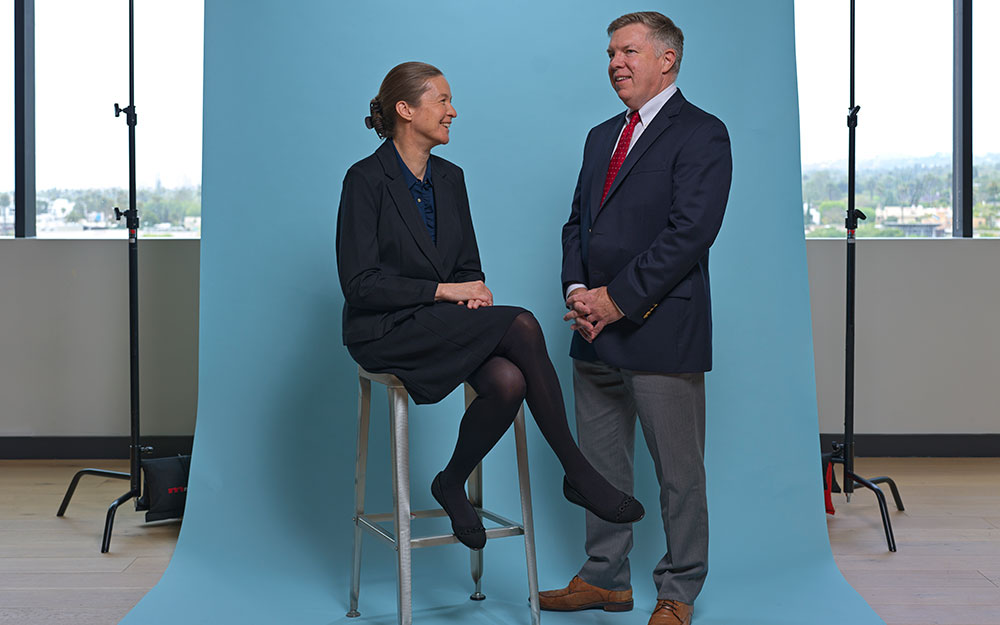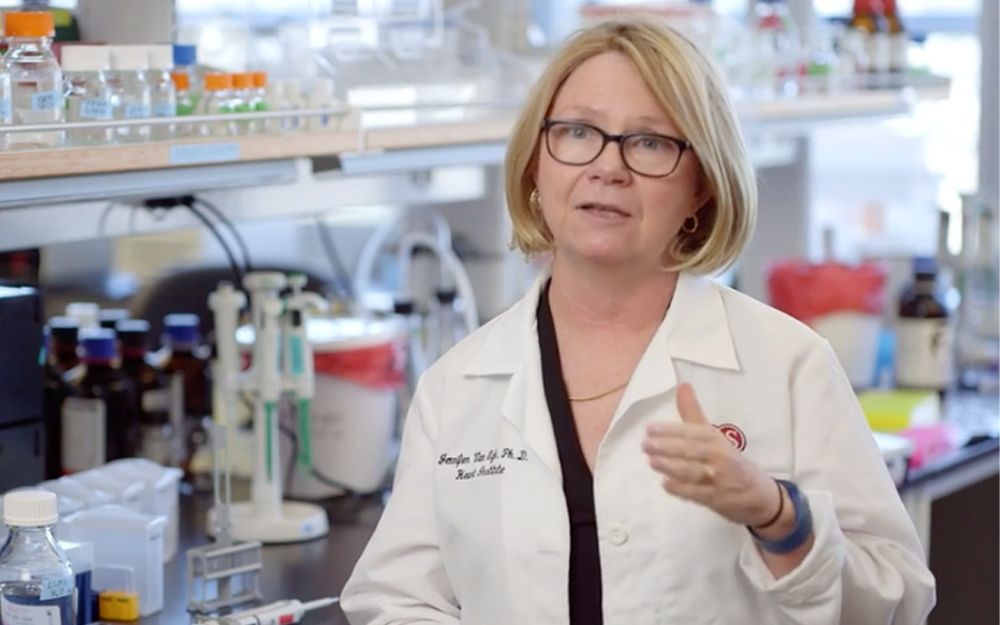Stem Cells and Regenerative Medicine: What's Next
Date
July 9, 2025
Credits

Date
July 9, 2025
Credits
Medical providers featured in this article
In Brief
{{cta-block}}
In the 15 years since its founding, the Cedars-Sinai Board of Governors Regenerative Medicine Institute has become a world leader in stem cell research. Immunologist Helen Goodridge, PhD, joined the institute at its inception and was recently appointed as its associate director. John Chute, MD, who is the Linda Ostrowski Chair in Hematology/Oncology in honor of Barry Rosenbloom, MD, was recently appointed as director of its Blood Program, in addition to his medical roles as director of the Division of Hematology and Cellular Therapy and the Center for Myelodysplastic Diseases Research.
Discoveries asked the leaders what they hope to achieve in the next 15 years.
Helen Goodridge, PhD: Fifteen years ago, induced pluripotent stem cells (iPSCs) were a relatively new technology. Since then, we’ve made great progress in leveraging iPSCs for modelling diseases. The launch of our Biomanufacturing Center in 2020 was a huge milestone, because it provides an opportunity to translate those stem cells into clinical products that can be given to patients.
Many of our investigators are studying individual organs on chips. Can we connect their work and replicate, for example, how the gut microbiome influences all organs of the body?"
— Helen Goodridge, PhD
A hallmark of the Regenerative Medicine Institute has been its collaboration with clinicians and scientists across Cedars-Sinai, particularly in neurology and orthopedics. Many of the diseases our investigators are studying have a developmental or degenerative component, so we’re also partnering with Cedars-Sinai Guerin Children’s and the Center for Translational Geroscience.
Looking forward, I hope to see a whole-body approach in our research. Many of our investigators are studying individual organs on chips. Can we connect their work and replicate, for example, how the gut microbiome influences all organs of the body? That’s something we’ll be exploring.
John Chute, MD: Today, we’re expanding the use of blood stem cells and iPSCs for non-cancer diagnoses, such as immune, neurologic and ophthalmologic diseases. We are also generating novel chimeric antigen receptor T (CAR-T) and natural killer (CAR-NK) cells for cancers that haven’t been targeted this way before. It’s a very exciting time!
Making differentiated iPSCs that are safe and sufficiently durable to have the desired clinical effect has been an ongoing challenge for the field. With the Biomanufacturing Center and the remarkable collaborations we host between leading physicians and researchers, the Regenerative Medicine Institute is well positioned to select the right areas of unmet need and the right biological targets to develop and test the next generation of breakthrough cellular therapies.





